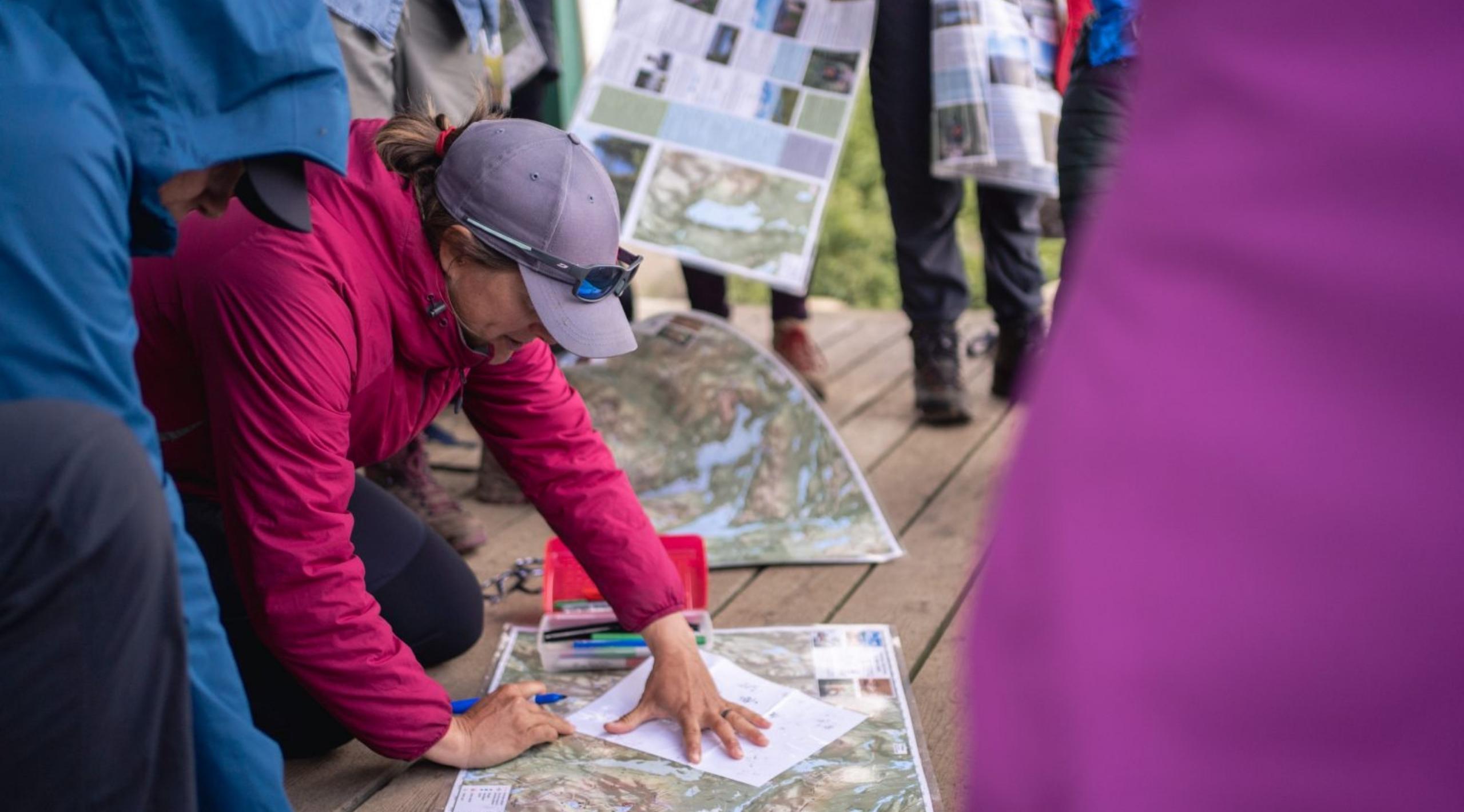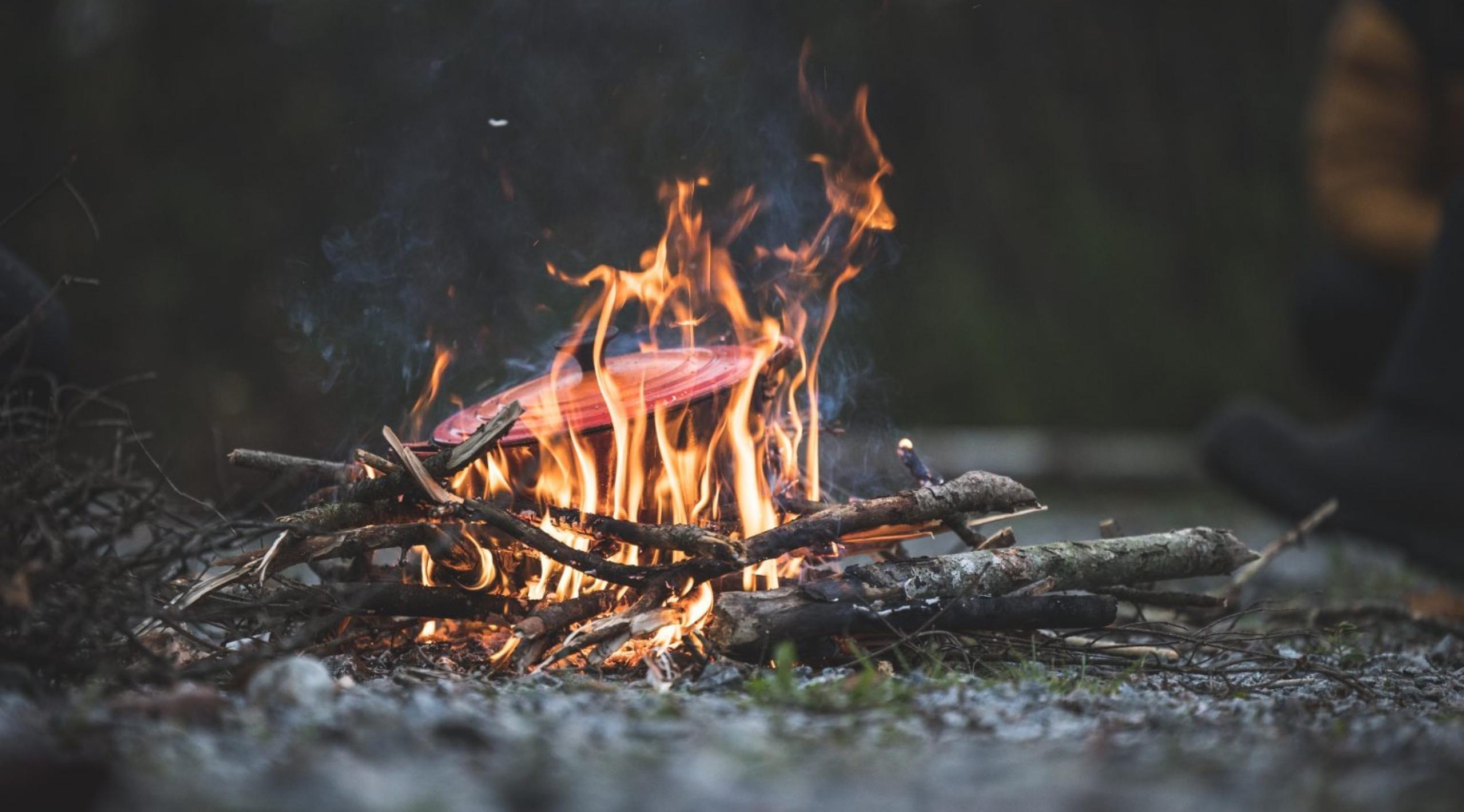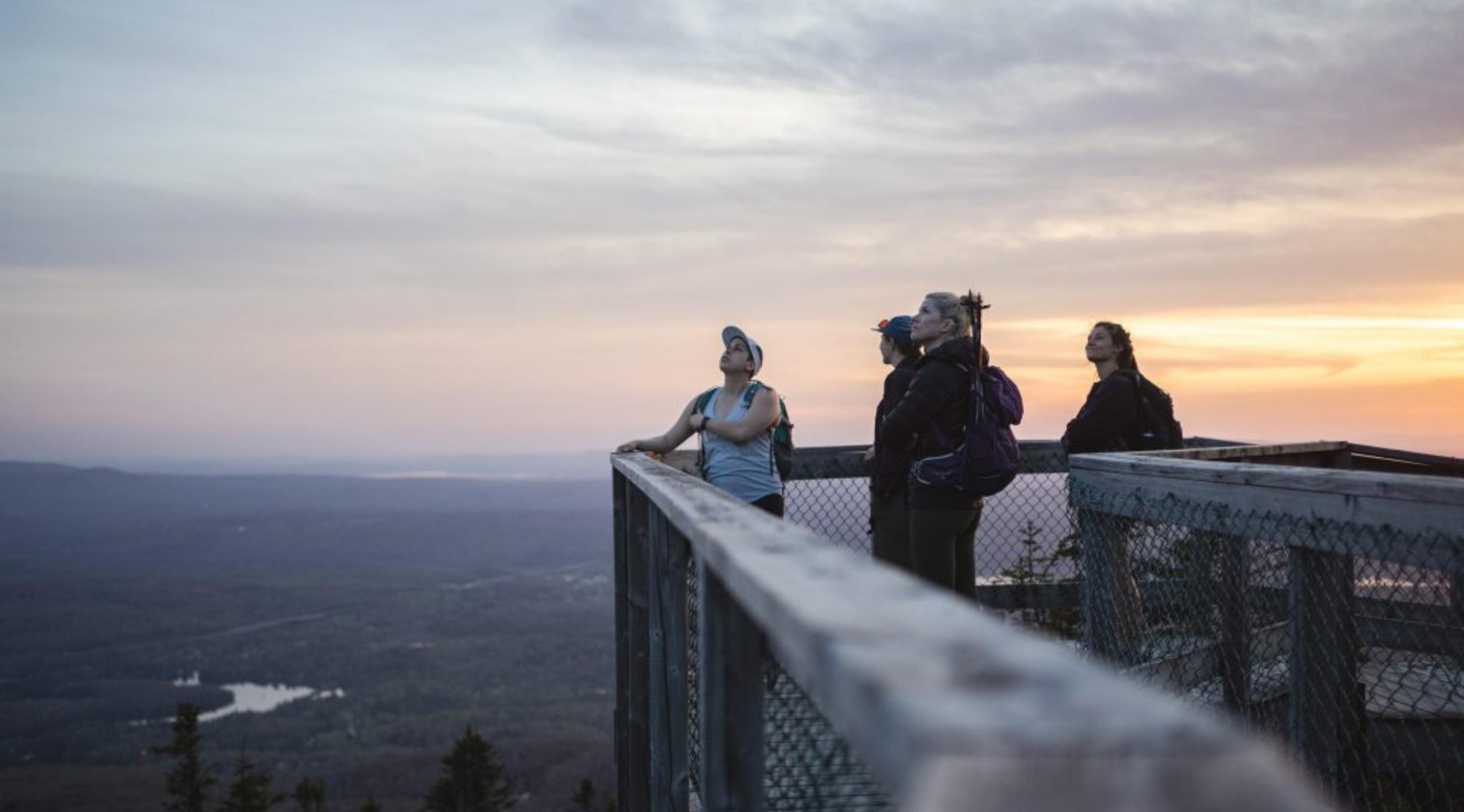.jpg)

Being prepared doesn't just mean packing for the weather! It also means preparing a first aid kit according to the activity, preventing waste management by planning meals and learning about the natural environment. This kind of planning will help you minimize the risk of discomfort due to the weather (heat stroke, hypothermia), be prepared in case of injury, lighten your bag thanks to good meal planning, but above all enjoy your adventure to the fullest. It will also help you to find the ideal route according to your objectives and also to limit your impact on the terrain.

Here, it applies when you choose your campsite! We opt for an established or used site, a rocky surface or snow. Attention, for snow, there must be at least 15 centimeters of snow above the shrubs for it to be considered a durable surface. When camping in the wilderness, it is preferable to change sites often and not to put tents too close to others so that the area does not become marked and thus become an established site. Choosing durable surfaces also means not deviating from the trail when hiking, even if the trail is very wet. When biking, you want to avoid braking techniques that create or enlarge holes.
We are talking about everything: organic matter, fecal matter, waste, hazardous materials, ashes, cleaners, etc. As for our needs, we want to prioritize existing toilets, but if you are in the wilderness, we must dig a hole at least 20 centimeters deep, which is at least 60 meters from waterways and the camp. You can also throw your dishwater in this same hole, taking care to sift the water to recover the pieces to put in your garbage bag. Speaking of dishes, we prioritize a biodegradable, odorless soap. Apple hearts (and other foodstuffs that we tell ourselves "it's not so bad"), go in your garbage bag and not in nature! The prevention part is especially helpful here for food by choosing to bring reusable containers to eliminate the need to bring back your trash.

Here that means not picking beautiful trail flowers or carrying dead wood from one place to another. The wood could have parasites that will contaminate the next site. It is for this same reason that we prefer to buy wood directly from the place where we camp rather than bringing it from home. We also want to brush our walking shoes and bicycle tires after an outing to control the spread of invasive species. Just like we do with our boats.
First of all, we find out if fires are allowed depending on the location and the time of year to avoid causing a forest fire. If they are allowed, we still want to ask ourselves if it is really necessary to make a fire, as the ecological footprint of using a burner for example is less than that of a fire. If our final choice is a fire, we will use the wood available and monitor the fire continuously. Once the fire is finished and cooled, if there is no specific place to dispose of the ashes, for example in the wilderness, we want to spread them in the vegetation so that they act as fertilizer. However, be careful not to spread them in waterways!

There is a very simple rule you can use here: the rule of thumb. Just extend your arm and hold your thumb up: if you can see the animal, you are too close! If you can cover it completely, you are at an adequate distance. If you encounter a wild animal, you want to move away quietly to disturb it as little as possible. We also want to place our camp properly to limit odors, i.e., put all odorous items, including soap and toothpaste, in a container that cuts off odors or out of reach of the animals.
We know that among Chèvres, we like to talk - sometimes loudly! We still want to try to limit the noise to respect other visitors who sometimes come to the outdoors for peace and quiet. It is also a good practice to offer help to others in case of emergency. We also want to respect the rules of courtesy and signal our presence when crossing a narrow path.
In the end, the important thing is to protect the places we love to practice our favorite sports for as long as possible. To learn more about the Leave No Trace principles, you can visit the From Town to Forest website, pros whose mission is to mitigate the impacts of outdoor activities and events.
See you out there Les Chèvres!
